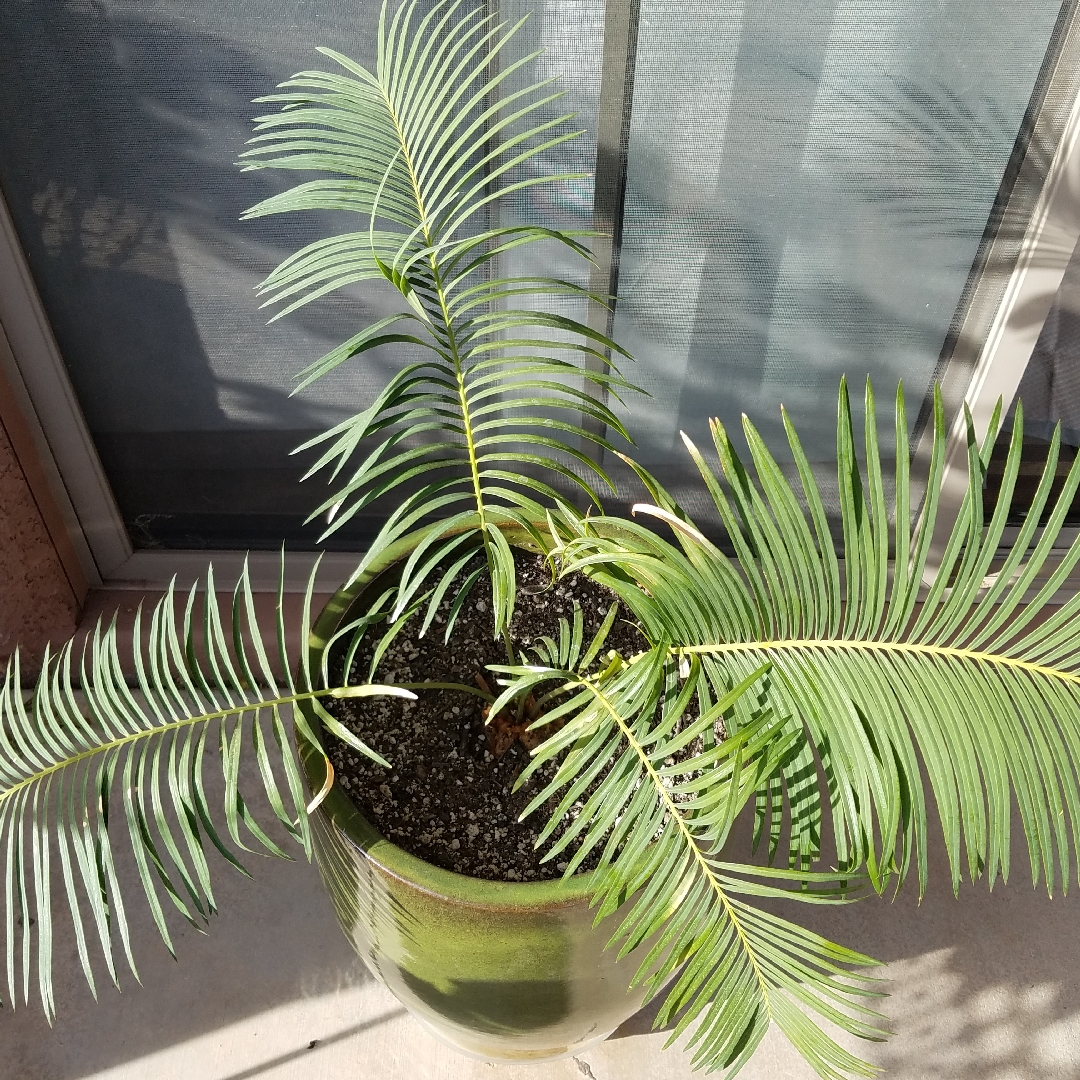
Cycas siamensis
Thai sago
The Thai sago is a short stemmed, palm-like plant with a swollen trunk and an attractive crown. There is a silver form which has emergent leaves more silvery-grey than the standard species. The leaves retain much of this colouring over time. It is found in many places in its native country, in dry open deciduous forest on poor rocky soil. This species grows in full sun to light shade. It is a popular houseplant, grown indoors in cooler climates.
Contributed by @AdamMoreno
-
Full sun to partial shade
-
Occasional watering
-
Frost Hardy: 23F (-5°C)
-
Moist and free draining
Common name
Thai sago
Latin name
Cycas siamensis
type
Fern
family
Cycadaceae
ph
5.0 - 7.5 Acid - Neutral
Plant & bloom calendar
-
Best time to plant
full grown dimensions
 1.50 M
1.50 M
1.50 M
1.50 M
Cycas siamensis
The Thai sago is a short stemmed, palm-like plant with a swollen trunk and an attractive crown. There is a silver form which has emergent leaves more silvery-grey than the standard species. The leaves retain much of this colouring over time. It is found in many places in its native country, in dry open deciduous forest on poor rocky soil. This species grows in full sun to light shade. It is a popular houseplant, grown indoors in cooler climates.
Planting
From Early Spring TO Early Spring
Cycads will grow in most types of soil, as long as t is free-draining. For growing in containers, any general purpose mixed with John Innes No. 3 and some slow-release fertiliser would be ideal. In mild regions it is possible to grow some cycads outdoors. Temperatures below -5C will damage the leaves, so wrap the plant well, or bring it indoors if that is a risk.
Propagating
From Late Spring TO Early Autumn
Cycads produce off-sets that can be cut from the parent plant, using a sterile knife.Cut where it meets the parent plant, and use a fungicide powder on the parent plant where the cut was made. Soak the "pup" for 30 minutes in a fungicide, then in a rooting stimulant for a similar length of time. then plant in clean pumice or scoria. It can take 6-10 months for the new plant to become established







